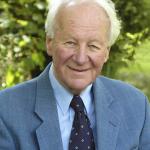
F.F. Bruce wrote the following brief summary of Predestination, which is another way of expressing election, which is one of the five points of Calvinism that together make up the TULIP acronym. Total Depravity, Unconditional Election, Limited Atonement, Irresistible Grace, Perseverance of the Saints.
PREDESTINATION — the biblical teaching that declares the sovereignty of God over human beings in such a way that the freedom of the human will is also preserved.
Two major concepts are involved in the biblical meaning of predestination. First, God, who is all-powerful in the universe, has foreknown and predestined the course of human history and the lives of individuals. If He were not in complete control of human events, He would not be sovereign and, thus, would not be God.
Second, God’s predestination of human events does not eliminate human choice. A thorough understanding of how God can maintain His sovereignty and still allow human freedom seems to be reserved for His infinite mind alone. Great minds have struggled with this problem for centuries.
Two views of predestination are prominent today. One view, known as Calvinism, holds that God offers irresistible grace to those whom he elects to save. The other view, known as Arminianism, insists that God’s grace is the source of redemption but that it can be resisted by people through free choice. In Calvinism, God chooses the believer; in Arminianism, the believer chooses God . . .
The doctrine of predestination does not mean that God is unjust, deciding that some people will be saved and that others will be lost. Mankind, because of Adam’s Fall in the Garden of Eden, sinned by free choice.
Thus, no person deserves salvation. But God’s grace is universal. His salvation is for “everyone who believes” (Rom. 1:16) . . .
Predestination is a profound and mysterious biblical teaching. It focuses our thinking on human freedom and responsibility as well as divine sovereignty.
Youngblood, R.F., Bruce, F.F. and Harrison, R.K., Thomas Nelson Publishers (eds.) (1995) Nelson’s new illustrated Bible dictionary. Nashville, TN: Thomas Nelson, Inc.
Read More

















